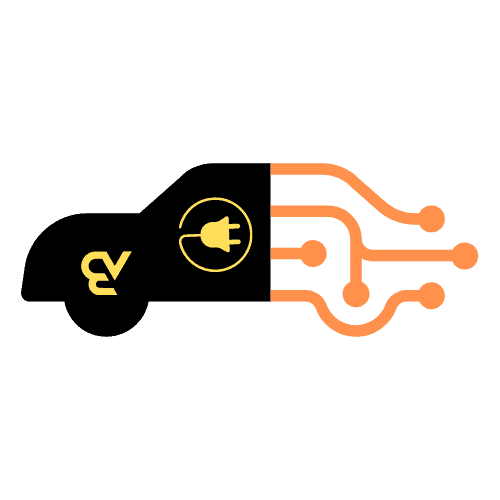The Economic Impact and Job Creation Potential of Electric Vehicles in Canada and the USA
wordpress-Default June 30, 2024 0 COMMENTS
The electric vehicle (EV) revolution is not just about transitioning to cleaner energy sources; it’s also a major driver of economic growth and job creation in both the USA and Canada. As the EV industry continues to expand, it brings with it a multitude of economic benefits, including job creation, investment opportunities, and the revitalization of various sectors. This blog explores the multifaceted economic impact of EVs and how they are shaping the job market in North America.
The EV Market Landscape
The global push towards reducing carbon emissions has positioned EVs as a critical component of the future automotive industry. In the USA and Canada, governments are implementing policies and incentives to promote EV adoption. These include federal tax credits, state and provincial rebates, and investments in charging infrastructure. As a result, the EV market in North America is experiencing rapid growth, with an increasing number of manufacturers entering the space and expanding their production capabilities.
Job Creation in the EV Industry
The rise of EVs has created a significant number of jobs across various sectors. These jobs span the entire EV supply chain, from research and development (R&D) and manufacturing to sales, maintenance, and infrastructure development. Let’s delve into some key areas where job creation is most pronounced:
- Manufacturing and AssemblyThe production of EVs involves assembling batteries, electric motors, and other components, creating numerous jobs in manufacturing plants. Major automakers like Tesla, General Motors, and Ford have established or expanded their EV production facilities in North America. These plants not only produce EVs but also create jobs in related industries, such as parts suppliers and logistics.For instance, Tesla’s Gigafactory in Nevada employs thousands of workers and has spurred economic growth in the region. Similarly, GM’s investment in its EV manufacturing facilities in Michigan and Ohio is expected to create thousands of jobs. In Canada, companies like Lion Electric and ElectraMeccanica are also contributing to job creation through their EV manufacturing operations.
- Battery ProductionBatteries are the heart of EVs, and their production is a critical aspect of the EV supply chain. The demand for batteries has led to the establishment of giga factories dedicated to battery production. These facilities require a skilled workforce to design, manufacture, and test batteries, resulting in significant job opportunities.The USA is seeing substantial investments in battery manufacturing. Companies like Panasonic, LG Chem, and SK Innovation are setting up or expanding battery plants, creating thousands of jobs. In Canada, companies such as Magna International are involved in battery production, contributing to job creation and economic growth.
- Research and DevelopmentInnovation is key to the EV industry’s growth, and significant investments are being made in R&D to develop advanced technologies. R&D centers focus on improving battery performance, developing autonomous driving systems, and enhancing overall vehicle efficiency. These centers employ engineers, scientists, and technicians, providing high-skilled job opportunities.Both the USA and Canada are home to numerous R&D facilities operated by automakers, technology companies, and research institutions. Silicon Valley in California is a hub for EV-related R&D, with companies like Tesla and Apple leading the way. In Canada, institutions like the University of Toronto and the University of British Columbia are conducting cutting-edge research in EV technologies.
- Charging InfrastructureThe growth of the EV market necessitates the expansion of charging infrastructure. Installing and maintaining charging stations creates jobs in construction, electrical work, and maintenance. Governments and private companies are investing heavily in building a robust network of charging stations to support the increasing number of EVs on the road.In the USA, companies like ChargePoint, EVgo, and Electrify America are leading the charge in expanding the charging infrastructure, creating thousands of jobs in the process. In Canada, the federal government’s Electric Vehicle and Alternative Fuel Infrastructure Deployment Initiative is funding the installation of charging stations, contributing to job creation.
Economic Benefits Beyond Job Creation
While job creation is a significant economic benefit of the EV industry, the economic impact extends beyond employment. The EV revolution is driving investment, fostering innovation, and contributing to economic diversification.
- Investment and Economic GrowthThe EV industry attracts substantial investment from both the public and private sectors. Governments are providing funding and incentives to support EV manufacturing, infrastructure development, and research initiatives. At the same time, private companies are investing billions of dollars in developing new technologies and expanding production capacities.These investments stimulate economic growth by creating new business opportunities and driving demand for related industries. For example, the growth of the EV market boosts demand for raw materials like lithium, cobalt, and nickel, benefiting mining companies and related industries in both the USA and Canada.
- Innovation and Technological AdvancementThe push for EV adoption is fostering innovation and technological advancement. Companies are developing new materials, improving battery technologies, and creating advanced software systems for EVs. These innovations have broader applications beyond the automotive industry, driving progress in sectors like renewable energy, electronics, and artificial intelligence.The USA and Canada are both leaders in technological innovation, with numerous startups and established companies working on cutting-edge EV technologies. This innovation ecosystem attracts talent and investment, further bolstering economic growth.
- Economic DiversificationThe transition to EVs contributes to economic diversification by reducing dependence on traditional fossil fuel industries. As the EV market grows, it creates new opportunities in manufacturing, technology, and services, helping to diversify the economies of the USA and Canada.In regions traditionally reliant on oil and gas, the EV industry offers an alternative path for economic development. For instance, Alberta, a province known for its oil industry, is exploring opportunities in the EV supply chain, including battery recycling and renewable energy integration.
Challenges and Future Outlook
Despite the numerous economic benefits, the transition to EVs also presents challenges. The shift from traditional internal combustion engine vehicles to EVs requires significant changes in workforce skills and training. Workers in the automotive industry need to adapt to new technologies and processes, necessitating investment in education and training programs.
Additionally, the expansion of the EV market depends on the availability of critical raw materials. Ensuring a stable supply of materials like lithium and cobalt is essential for sustained growth. Both the USA and Canada are working to secure their supply chains and develop domestic sources of these materials.
Looking ahead, the future of the EV industry in North America appears promising. Government policies, technological advancements, and growing consumer demand are driving the market forward. As the industry evolves, it will continue to create jobs, attract investment, and contribute to economic growth.
The electric vehicle revolution is transforming the economic landscape of the USA and Canada. By creating jobs, driving investment, and fostering innovation, the EV industry is playing a pivotal role in shaping the future economy. As North America continues to embrace electric mobility, the economic impact will only grow, offering new opportunities for workers, businesses, and communities.







